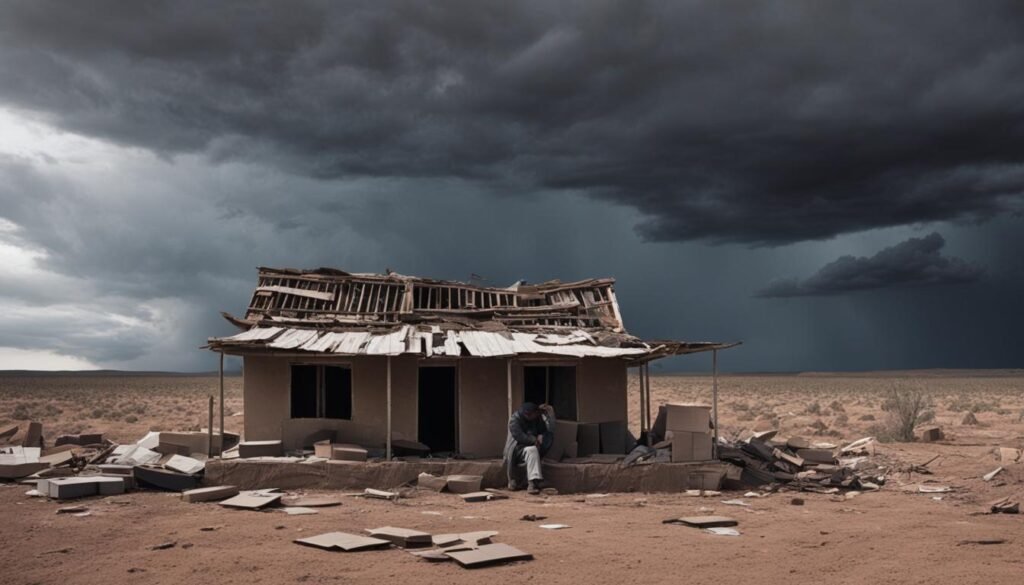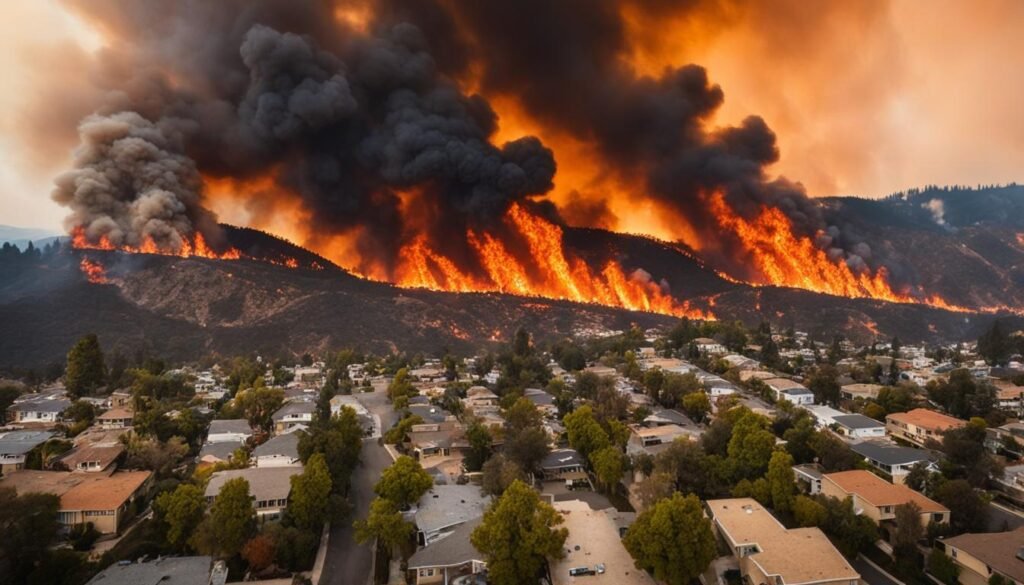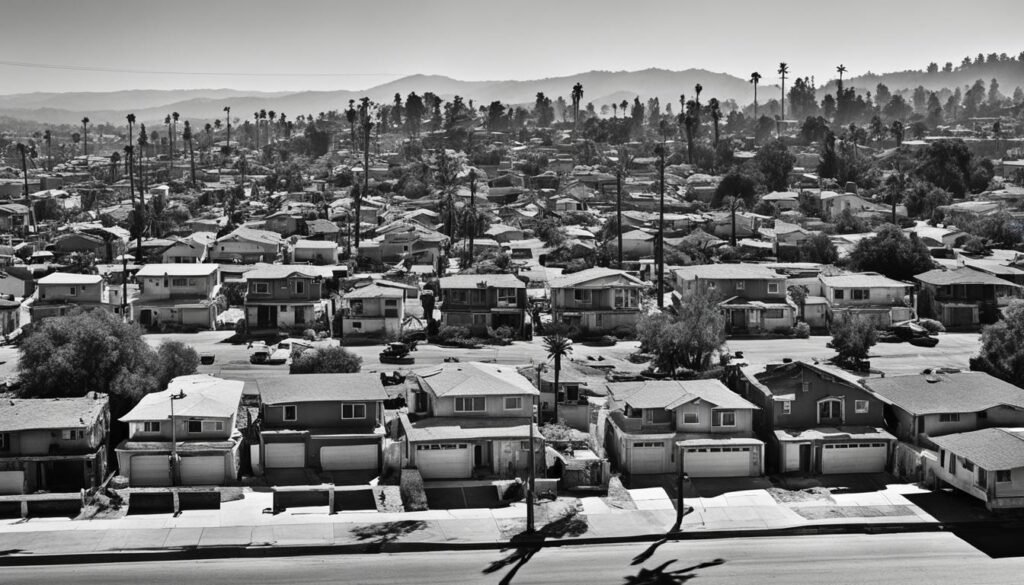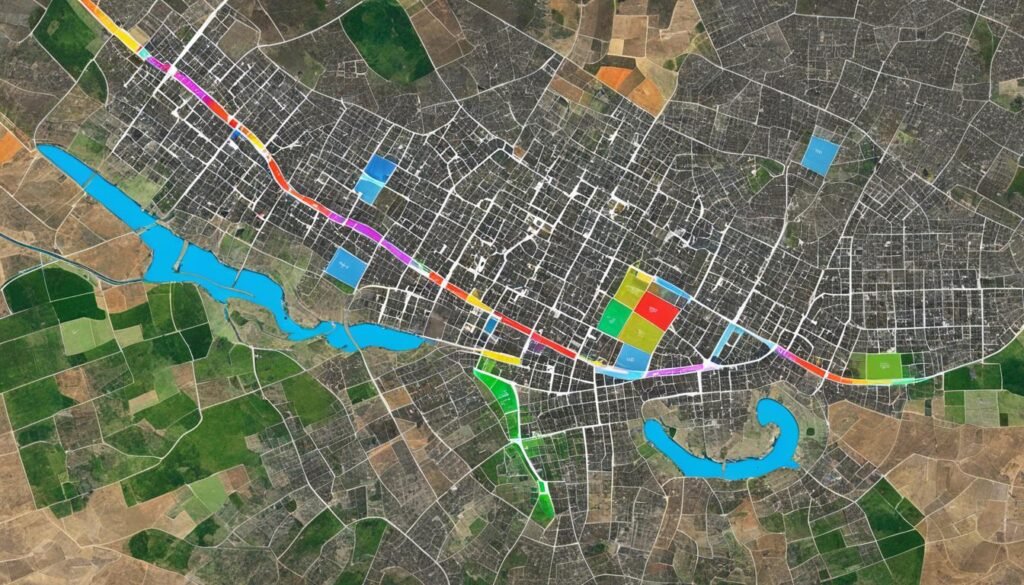Greetings, fellow readers! Today, I want to delve into a subject that has been stirring conversations and raising eyebrows: California’s reputation. Many people wonder why this vibrant and diverse state is often regarded as “bad.” It’s essential to understand that California faces numerous challenges and issues that have contributed to its negative image. In this article, I will explore some of the key problems facing the state and the factors that have led to its current state.
Key Takeaways:
- California’s negative reputation is rooted in a range of challenges and problems.
- Economic struggles, high cost of living, and income inequality are pressing concerns.
- Environmental issues, including wildfires and drought, pose significant threats.
- Political turmoil, ineffective governance, and excessive regulations hinder progress.
- Social and cultural concerns like homelessness and education system challenges persist.
Now, let’s dive deeper into these issues and shed light on why some perceive California as “bad.”
Economic Struggles and Financial Issues
California has been facing significant economic struggles and financial issues that have had a profound impact on the state’s well-being. One of the most pressing concerns is the high cost of living, which has created immense challenges for residents. The skyrocketing housing prices and exorbitant taxes have made it increasingly difficult for individuals and families to afford basic necessities. This has resulted in a surge in homelessness, as many Californians cannot afford stable housing.
Moreover, the high cost of living has exacerbated income inequality, with a noticeable gap between the rich and the poor. Poverty rates in California have soared, leaving many residents unable to meet their basic needs. The state’s income inequality has become a significant societal issue that needs to be urgently addressed.
Additionally, California is grappling with budget deficits and state debt, which have further strained its financial stability. The state’s excessive spending has led to a budget deficit, making it even harder to invest in essential public services and infrastructure. The accumulation of debt poses long-term challenges and hampers the state’s ability to provide for its citizens effectively.

Key Points:
- The high cost of living in California, driven by skyrocketing housing prices and exorbitant taxes, has made it difficult for residents to afford basic necessities.
- Income inequality has worsened due to the high cost of living, leading to a widening wealth gap.
- Homelessness rates have risen as a result of the affordability crisis.
- California is grappling with budget deficits and accumulating state debt, putting further strain on its financial stability.
Environmental Concerns and Natural Disasters
California is no stranger to the devastating impact of environmental concerns and natural disasters. The state’s unique geography and climate make it highly vulnerable to a range of challenges that threaten both the environment and the well-being of its residents.

The Effects of Climate Change
Climate change has had a profound impact on California, exacerbating existing problems and creating new ones. One of the most pressing issues is the increase in wildfires, which have become more frequent and intense in recent years. These destructive blazes have ravaged vast areas of land, causing immense damage to ecosystems, homes, and infrastructure.
Drought and Water Scarcity
California’s prolonged periods of drought and water scarcity have led to significant challenges in managing water resources. The lack of rainfall and reduced snowpack in mountainous regions have strained water supplies, forcing communities to implement water rationing measures. These conditions not only affect residents’ daily lives but also have severe implications for agriculture, wildlife, and the overall health of the ecosystem.
Air Pollution and Health Concerns
The state’s booming population and heavy industrial activity have contributed to high levels of air pollution, especially in densely populated areas. This chronic exposure to pollutants poses serious health risks, such as respiratory problems and increased susceptibility to cardiovascular diseases. Addressing air pollution is crucial for safeguarding public health and promoting a sustainable environment.
Earthquakes: A Constant Threat
California sits atop several major fault lines, making it susceptible to earthquakes. These natural disasters can cause widespread destruction, endangering lives and damaging critical infrastructure. While the state has implemented strict building codes and emergency preparedness measures, the threat of earthquakes remains a constant concern for residents.
In the face of these environmental challenges, California is actively working to implement policies and initiatives aimed at mitigating the impacts of climate change, promoting sustainable practices, and protecting its natural resources. By prioritizing environmental conservation and resilience, the state can work towards creating a safer and more sustainable future for its residents.
Political and Governance Issues
California’s political landscape has been marred by turmoil and governance issues. The state is deeply divided along partisan lines, with competing ideologies often impeding progress and effective decision-making. This partisan divide has hindered efforts to address pressing challenges and find common ground on crucial issues.
In addition to the partisan divide, California has faced leadership challenges and allegations of corruption, which have further eroded public trust in the government. Scandals and unethical behavior by elected officials have undermined confidence and hindered the ability to enact effective policies.
Moreover, California’s high taxes and excessive regulations have created significant barriers for businesses and stifled economic growth. This burden has contributed to the struggles faced by entrepreneurs and hindered job creation, exacerbating the state’s economic challenges.
The state’s governance woes are further compounded by ineffective government policies. Despite the pressing issues facing California, government actions have often fallen short in addressing them effectively. This lack of effective policy implementation has perpetuated the state’s problems and contributed to its overall decline.

California must address these political and governance issues in order to turn the tide. By fostering a more inclusive and collaborative political environment, the state can work towards viable solutions that prioritize the needs of its residents. This will require comprehensive reform efforts aimed at reducing corruption, streamlining regulations, and implementing effective government policies that address the pressing challenges facing the state. Only through these measures can California overcome its governance issues and build a brighter future for its citizens.
Social and Cultural Concerns
California is currently facing a range of social and cultural concerns that have significant implications for the state’s well-being and overall quality of life. These challenges encompass various aspects of society and highlight the need for effective solutions and interventions.
Homelessness Crisis
One pressing issue that California is grappling with is a homelessness crisis. The state has witnessed a sharp increase in the number of individuals living on the streets, struggling to find safe and stable housing. The impact of this crisis extends beyond the individuals affected, impacting public health, safety, and the overall community’s well-being.
Drug Epidemic
In addition to the homelessness crisis, California is also facing a severe drug epidemic. Substance abuse and addiction have taken hold, exacerbating existing societal issues and posing significant challenges for communities as they struggle to address the associated social, health, and economic consequences.
Income Inequality
Income inequality remains a significant problem in California. The state experiences stark disparities in wealth and opportunities, contributing to a growing gap between the rich and the poor. This inequality not only hampers social mobility but also impacts access to essential services and opportunities for a better life.
Challenges in the Education System
The education system in California faces numerous challenges that hinder students’ ability to thrive and succeed. Overcrowded classrooms, underfunding, inadequate resources, and low academic performance are among the critical issues that need to be addressed urgently. These challenges have far-reaching consequences for California’s future generations and their potential for success.
Immigration Tensions
Immigration tensions have fueled ongoing debates and divisions within the state. California’s diverse population and its proximity to the Mexican border make immigration an inherently complex and contentious issue. The state must find ways to navigate and address these tensions while fostering inclusive communities and promoting social cohesion.
Conclusion
In conclusion, California is facing a multitude of challenges and problems that have contributed to its negative reputation. The state’s economic struggles, including high cost of living, homelessness, and income inequality, have made it increasingly difficult for residents to thrive. Additionally, environmental concerns such as wildfires, drought, and air pollution pose serious threats to the well-being of Californians.
Political and governance issues, marked by partisan divide and ineffective government policies, further hinder progress and exacerbate the state’s problems. Social and cultural concerns, including the homelessness crisis, drug epidemic, and education system challenges, also contribute to California’s complex set of issues.
However, by acknowledging these challenges and working towards sustainable solutions, California can strive towards a brighter future. Effective governance, comprehensive economic policies, environmental conservation efforts, and addressing social inequities are key to restoring the state’s positive standing. By taking proactive measures, California can overcome its current problems and regain its reputation as a thriving and welcoming state.
FAQ
Why is California facing economic struggles and financial issues?
California is grappling with a high cost of living, including skyrocketing housing prices and exorbitant taxes, which has made it increasingly difficult for residents to afford basic necessities. This has led to a rise in homelessness and income inequality. Additionally, the state has faced budget deficits and accumulated debt, putting further strain on its financial stability.
What are the environmental concerns and natural disasters that California is facing?
California is highly vulnerable to the effects of climate change, including devastating wildfires that have become more frequent and intense. The state also grapples with drought conditions and water scarcity, leading to water rationing and resource management challenges. Air pollution, particularly in densely populated areas, and earthquakes also pose significant threats to the state’s environment and safety.
What are the political and governance issues plaguing California?
California has been characterized by political turmoil and governance issues. The state has a deep partisan divide, hindering progress and effective decision-making. Leadership challenges and allegations of corruption have further eroded public trust in the government. Additionally, high taxes and excessive regulations have created barriers for businesses and stifled economic growth. Ineffective government policies have also failed to address the state’s pressing problems, contributing to its overall decline.
What are the social and cultural concerns that California is currently facing?
California is grappling with a homelessness crisis, with high numbers of individuals living on the streets. A drug epidemic has also worsened societal issues. Income inequality remains a significant problem, with disparities in wealth and opportunity. The education system faces challenges such as overcrowded classrooms and low performance. Tensions surrounding immigration have also fueled debates and divisions within the state.
What are the challenges and drawbacks of living in California?
California faces numerous challenges, including economic struggles, environmental concerns, political and governance issues, and social and cultural concerns. These problems have contributed to its negative reputation and can make living in the state difficult. Factors such as high cost of living, housing affordability issues, natural disasters, political divisions, and social inequality can be drawbacks for individuals living in California.
What is the overall situation in California?
California faces a range of challenges, including economic struggles, environmental concerns, political and governance issues, and social and cultural concerns. These issues have contributed to its negative reputation. By acknowledging and working towards resolving these challenges, California can strive towards a brighter future and regain its positive standing.







